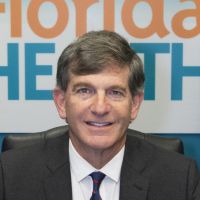
The CDC estimates that over 140 million Americans have been infected with and recovered from COVID-19. Studies show that up to one in three COVID-19 survivors continue to suffer symptoms three to six months after getting infected; nearly half of these are unable to return to full time work as a result. Around the world, Long COVID is causing significant disability and suffering, disproportionately affecting minority and low-income populations.
With generous funding from The Hassenfeld Foundation, the Long COVID initiative at the Brown University School of Public Health was publicly launched in September 2021 to bring together researchers, clinicians, and experts in policy as well as strategic communications, to rapidly study and report on the significant impact of Long COVID on people, communities, workplaces, healthcare, and society as a whole.
Specifically, the Long COVID Initiative will:
-
Synthesize and share emerging evidence on the clinical and epidemiologic aspects of Long COVID.
-
Synthesize and share emerging evidence on the social and economic impact of Long COVID.
-
Develop expert consensus on what is known, and where better evidence is most urgently needed.
-
Generate knowledge to fill evidence gaps, with a focus on the social and economic impact of Long COVID.
-
Apply an equity lens to all aspects of the work. Given the disproportionate impact of the pandemic on communities of color, Long COVID, too, may be affecting Black and brown Americans more than whites. The project will specifically call out where data and information on any minorities is missing, and collaborate to generate and synthesize such evidence on how Long COVID affects all populations.
-
Evaluate emerging policies and develop policy recommendations for health system leaders, employers, and federal, state and local health policy makers and others.
-
Provide employers with tools to appropriately work with impacted employees.
-
Develop a web and social media platform to share knowledge, news and latest evidence, and to engage experts, practitioners, policy makers, media representatives and the general public in conversations and learning about Long COVID.
Interdepartmental Collaborations at Brown University
Center for Evidence Synthesis in Health (CESH): The initiative is working with CESH to rapidly review emerging literature around Long COVID and share key findings on an ongoing basis. This collaborative review process will allow users of scientific literature to contextualize and act upon published findings when making data-driven decisions.
Survey Research Center: Data collection via patient and employer surveys is a key pillar of the Long COVID initiative. We are partnering with the Survey Research Center on study designs, questionnaire development, and data analysis to meet industry best practices and ensure the highest quality returns.
Meet our team

Francesca Beaudoin, MD, MS, PhD
Dr. Beaudoin is an Associate Professor and Interim Chair of the Department of Epidemiology, and an Associate Professor of Emergency Medicine and Health Services, Policy and Practice. She is a board-certified practicing emergency physician and clinical epidemiologist with expertise in opioid use disorders and adverse post-traumatic health outcomes, particularly pain and substance use. She is Principal Investigator of multiple federal and private grant awards, has written and implemented practice management policies for health care systems, and has served as a member of the Food and Drug Administration Anesthetic and Analgesic Drug Products Advisory Committee. She has partnered with small businesses and community partners to innovate new approaches to solving key public health problems such as the opioid epidemic. She collaborates with state stakeholders such as the Rhode Island Department of Health and the Governor’s Task Force on Opioid Overdoses. She is a Senior Medical Advisor for the Institute for Clinical and Economic Review where she leads teams in the analyses and critical appraisals of evidence related to existing and emerging health technologies.

Megan Ranney, MD, MPH
Megan Ranney MD MPH is a practicing emergency physician, researcher, and advocate for innovative approaches to health. Her work focuses on the intersection between digital health, violence prevention, and population health.
She is the Academic Dean for the School of Public Health, as well as founding Director of the Brown-Lifespan Center for Digital Health (https://digitalhealth.med.brown.edu/). She is co-founder and Senior Strategic Advisor to the American Foundation for Firearm Injury Reduction in Medicine (AFFIRM) at the Aspen Institute (www.affirmresearch.org), which creates practical, scalable, and immediate health-based solutions to reduce all forms of firearm-related injuries in the United States. She recently served as co-founder and president of the board for GetUsPPE.org, a startup dedicated to matching donated personal protective equipment to those who need it most. She is a Fellow of the fifth class of the Aspen Health Innovators Fellowship Program and a member of the Aspen Global Leadership Network.
She graduated from Harvard University summa cum laude with a Bachelor of Arts in History of Science in 1997. She served as a Peace Corps Volunteer in Cote d’Ivoire prior to attending medical school at Columbia University College of Physicians & Surgeons in NYC. She graduated with AOA status and received the Leonard Tow Humanism in Medicine award from the Gold Humanism Society on graduation. She completed internship, residency, and chief residency in Emergency Medicine, as well as a fellowship in Injury Prevention Research and a Master of Public Health, at Brown University.
She is currently the Warren Alpert Endowed Professor in the Department of Emergency Medicine at Alpert Medical School of Brown University and a Professor of Behavioral and Social Science / Health Services, Policy, and Practice at the School of Public Health. She is a Fellow of the American College of Emergency Physicians. She has previously served as an appointed member of HIMSS’ mHealth Physician Taskforce, an elected member of the Board of Directors of the Society for Academic Emergency Medicine, and chair of the Firearm Injury Research Technical Advisory Group for the American College of Emergency Physicians. She has been PI or Co-I over a dozen federally funded grants, all focused on technology-based interventions for high risk populations.
Her work has been featured by hundreds of media outlets, including CNN, MSNBC, the BBC, the New York Times, the Washington Post, and Fox News.

Laura Chambers, MPH, PhD
Postdoctoral Research Fellow
Brown University School of Public Health

Scott Rivkees, MD
Dr. Rivkees is a pediatric endocrinologist and physician-scientist who served as Florida’s State Surgeon General and Secretary of Health from June 2019 to September 2021. As State Surgeon General, Dr. Rivkees also served as State Health Officer for the Florida Department of Health.
Dr. Rivkees is a graduate of Rutgers University and the University of Medicine and Dentistry of New Jersey. He received residency, fellowship and postdoctoral training and served as faculty at Massachusetts General Hospital and Harvard Medical School. Before moving to Florida, Dr. Rivkees served as professor of pediatrics with tenure at Yale University. As associate chair for research he started and directed the Yale Pediatric Thyroid Center, one of the first of its kind in the United States.
From 2012 to 2019, Dr. Rivkees served as chair of the department of pediatrics at the University of Florida College of Medicine and physician-in-chief of UF Health Shands Children’s Hospital, part of UF Health Shands Hospital and the University of Florida’s Academic Health Center. He also served as academic chair of pediatrics at Orlando Health and the University of Florida College of Medicine pediatric chair at Studer Family Children’s Hospital at Sacred Heart in Pensacola.
Dr. Rivkees has worked with the National Institutes of Health and the U.S. Food and Drug Administration on drug safety issues. He was responsible for the safety alert on liver toxicity caused by the antithyroid drug propylthiouracil. This led to major international treatment practice changes. For his effort, he was recognized as the 2018 recipient of the American Thyroid Association’s Paul Starr Award.
During his career, Dr. Rivkees has been named as “One of America’s Best Doctors,” “One of America’s Top Pediatricians” and “One of New York’s Best Doctors.” He is a member of the American Society for Clinical Investigation, the Connecticut Academy of Science and a fellow of the American Academy for the Advancement of Science. Dr. Rivkees is also a recipient of the Pioneer Award from CARES and the Special Service Award from the American Academy of Pediatrics.
Dr. Rivkees has had more than 35 years of continuous research funding from the National Institutes of Health. He has more than 250 publications.
He is past chair of the Board of Scientific Counselors for the Eunice Kennedy Shriver National Institute of Child Health and Human Development. He is past chair of the Advocacy Committee of the Association of Medical School Pediatric Department Chairs, past treasurer of the Florida Chapter of the American Academy of Pediatrics and past member of the Pediatric Policy Council.
Emily Hough
Emily Hough is a 2021–22 Commonwealth Fund U.K. Harkness Fellow in Health Care Policy and Practice based at Brown School of Public Health, where she is working with Dean Ashish Jha and Professor Vincent Mor. Before starting her Fellowship Emily was Director of the Acute Provider Alliance for NHS North East London, where she supported collaboration across three NHS Trusts working to improve quality and access to care, with a focus on COVID-19 recovery. Prior to that Emily Director of Strategy at NHS England, where she led a strategy team helping to solve some of the most complex problems facing the English healthcare system.
In her role as Director of Strategy Emily contributed to the development of the NHS Long Term Plan and the NHS Five Year Forward View, the most recent national strategies for the future of healthcare in England. She also led the delivery of national programs looking at how the NHS can play a greater role in improving the wider social determinants of health, including NHS Healthy New Towns, Health and Work and the Greener NHS program. Additionally, she established the programme to develop the “NHS as an anchor institution,” working in partnership with the Health Foundation to consider how healthcare can create social value in local communities. Emily’s experience also includes advising the first NHS Trust Special Administrator and supporting the implementation of a major service reconfiguration in North Central London. She began her career as a management consultant, having studied Psychology at the University of Edinburgh

Ashish K. Jha, MD, MPH
A practicing physician, Jha is recognized globally as an expert on pandemic preparedness and response as well as on health policy research and practice. He has led groundbreaking research around Ebola and is now on the frontlines of the COVID-19 response, leading national and international analysis of key issues and advising state and federal policy makers.
He served as the dean of the Brown School of Public Health after leading the Harvard Global Health Institute and teaching at the Harvard T.H. Chan School of Public Health and Harvard Medical School.
Dr. Jha has published more than two hundred original research publications in prestigious journals such as the New England Journal of Medicine and the BMJ, and is a frequent contributor to a range of public media. He has extensively researched how to improve the quality and reduce the cost of health care, focusing on the impact of public health policy nationally and around the globe.
Before joining the Brown School of Public Health, Dr. Jha was a faculty member at the Harvard T.H. Chan School of Public Health (HSPH) since 2004 and Harvard Medical School since 2005. He was the Faculty Director of the Harvard Global Health Institute from 2014 until September 2020. From 2018 to 2020, he served as the Dean for Global Strategy at the Harvard T.H. Chan School of Public Health.
A general internist previously with the West Roxbury VA in Massachusetts, Dr. Jha will continue his practice at the Providence VA Medical Center.
Dr. Jha was born in Pursaulia, Bihar, India in 1970. He moved to Toronto, Canada in 1979 and then to the United States in 1983. In 1992, Dr. Jha graduated Magna Cum Laude from Columbia University with a B.A. in economics. He received his M.D. from Harvard Medical School in 1997 and then trained as a resident in Internal Medicine at the University of California, San Francisco. He returned to Boston to complete his fellowship in General Medicine from Brigham and Women’s Hospital and Harvard Medical School. In 2004, he completed his Master of Public Health degree at the Harvard T.H. Chan School of Public Health. He was elected to the National Academy of Medicine in 2013.

Stefanie Friedhoff
Friedhoff has worked as a foreign correspondent, feature writer, editor and photographer on three continents. A German-American journalist, content strategist and educator with 25+ years of experience in international media and higher education, she is an expert at creating innovative approaches to research and audience engagement on health, science, technology, education, and the information needs of democracies.Since the start of the COVID-19 pandemic in January 2020 Stefanie has been primarily focused on pandemic response research, policy and crisis communications, initially as director of content and strategy at the Harvard Global Health Institute (until September 2020) and now as a professor of the practice and senior director of content, strategy and public affairs at the Brown University School of Public Health.
Working closely with Ashish K. Jha, dean of the Brown School of Public Health, and Danielle Allen, director of Harvard’s Edmond J. Safra Center for Ethics, and a network of researchers, political scientists, economists and other experts, her efforts have included a framework for COVID-19 Suppression, including our COVID-19 Risk Levels Map, key metrics and policy documents; policy briefs to provide guidance for K-12 schools during the pandemic; policy work to secure federal funding for testing, tracing and supported isolation; and working with media partners at NPR, ProPublica, the New York Times and other outlets, for example to put in context the nation’s failure to adequately test for the virus and bring the pandemic under control.
Throughout her career, Stefanie has worked as a foreign correspondent, feature writer, editor, photographer, newsroom leader and occasional hiking tour guide on three continents. Her stories have been published in TIME, The Boston Globe, Geo, Sueddeutsche Zeitung, Frankfurter Allgemeine, and many other publications. A 2001 Nieman Foundation for Journalism Fellow, she is also a senior advisor to the Trust for Trauma Journalism and a board member at RiffReporter.

Philip Chan, MD, MS
Dr. Philip A. Chan, MD, MS is an Associate Professor in the Department of Medicine at Brown University. He has a secondary appointment in the Department of Behavioral and Social Sciences at the Brown University School of Public Health. Dr. Chan is Medical Director of the only publicly funded sexually transmitted diseases (STD) clinic in Rhode Island, as well as Rhode Island’s only dedicated Pre-Exposure Prophylaxis (PrEP) Program.
He serves as Consultant Medical Director for the Rhode Island Department of Health Center for HIV/AIDS, Viral Hepatitis, STDs, and TB and is actively engaged in many clinical and community-based public health programs to respond to STD and HIV rates among sexual and gender minorities in Rhode Island and beyond.
Thomas Trikalinos
Tom Trikalinos studied medicine in Greece. Currently he directs the Center for Evidence Synthesis in Health at Brown University — CESH for short. CESH faculty and staff work on novel methodologies for comparative effectiveness research, with emphasis on the steps of evidence synthesis (by means of systematic review and meta-analysis), and evidence contextualization (by means of decision and economic analysis). Trikalinos and his colleagues strive to modernize and optimize the processes of evidence-synthesis by porting methodologies from computer science and applied mathematics. His current research is on decision making under deep uncertainty.
Alyssa Bilinski, PhD, AM
Dr. Bilinski’s research focuses on developing novel methods for policy evaluation and applying these to identify interventions that most efficiently improve population health and well-being. Her methodological interests include advancing data-driven approaches to non-experimental causal inference, improving causal identification and interpretability in high-dimensional simulation models, and incorporating both cost-effectiveness and affordability into health care decision-making. She studies a range of policy areas, including health insurance reform, gaps in equitable and comprehensive access to dental care, and infectious disease management. During the COVID-19 pandemic, Dr. Bilinski worked with policymakers and researchers on projects including short-term hospital forecasts during the spring of 2020; modeling to inform contact tracing, school re-opening, and surveillance; and quantification & attribution of excess mortality.
Dr. Bilinski earned a PhD in Health Policy and AM in Statistics from the Harvard Graduate School of Arts and Sciences in 2021. Prior to this, she received her BA from Yale College and an MS from the London School of Hygiene and Tropical Medicine, where she studied as a Marshall Scholar. As a student, Dr. Bilinski was affiliated with the Harvard-Stanford Health Policy Data Science Lab and the Yale Center for Infectious Disease Modeling and Analysis. Outside of research, she enjoys powerlifting, long walks, and her weekly (pandemic-modified) potluck with friends.
Ian Saldanha, MBBS, MPH, PhD
Dr. Ian Saldanha is an epidemiologist and evidence-based health researcher with a background in medicine. He works at the Center for Evidence Synthesis in Health, where he is Assistant Director of the AHRQ-designated Brown University Evidence-based Practice Center (EPC). Before coming to Brown in January 2018, Ian was on the Faculty of the Department of Epidemiology at the Johns Hopkins Bloomberg School of Public Health in Baltimore, Maryland, where he worked at Cochrane United States, the Cochrane Eyes and Vision US Satellite, and the Johns Hopkins Center for Clinical Trials and Evidence Synthesis.
Ian is an elected member of the Society for Research Synthesis Methodology. His research focuses on the use of outcomes in comparative effectiveness research (clinical trials, systematic reviews, and other studies), methods and technology for research synthesis, and methods for research prioritization. Clinical area-wise, Ian’s work has addressed ophthalmology (especially ocular surface disease), women’s health, HIV/AIDS, and other areas.
Ian also has experience teaching evidence synthesis and epidemiology-related courses and workshops at graduate and undergraduate levels.
Gaelen Adam, MPH

Leah Lovgren

Bentley Holt
Arielle Cohen Tanugi-Carresse

Kung Chen
For inquiries related to the Long COVID Initiative, please contact [email protected]

